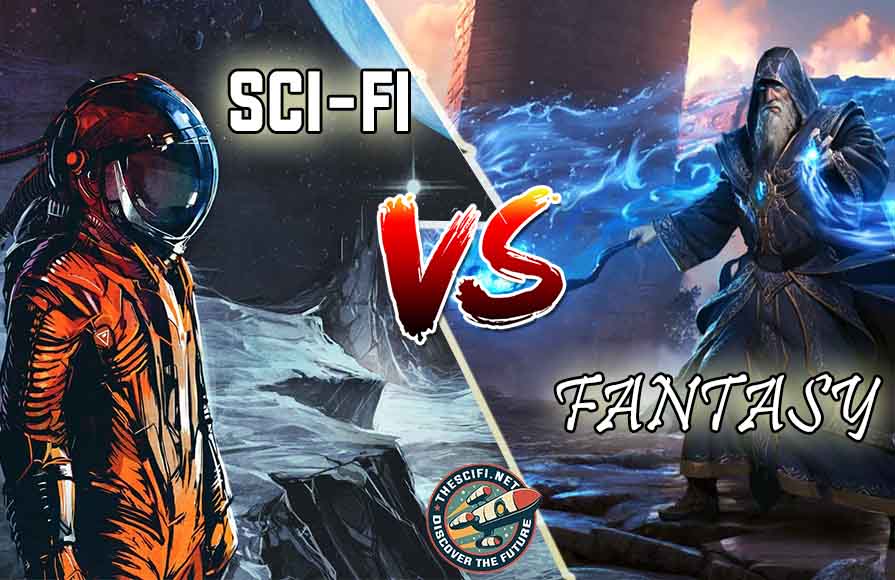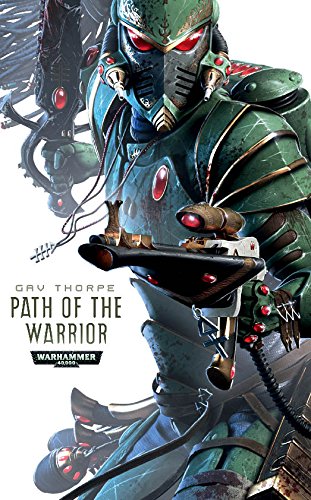Why Is Sci-fi Better Than Fantasy?
When it comes to the battle between sci-fi and fantasy, there’s always been a heated debate among fans. But let me tell you, my friend, why sci-fi is undeniably better than fantasy. Strap in, because we’re about to embark on an intergalactic journey of imagination and innovation.
First and foremost, sci-fi offers a level of intellectual stimulation that fantasy simply cannot match. While fantasy may transport you to magical realms and mythical creatures, sci-fi takes you to the stars and beyond, exploring the depths of scientific possibilities. From mind-bending time travel theories to mind-boggling technological advancements, sci-fi pushes the boundaries of what we know and challenges us to imagine what could be. It sparks our curiosity, ignites our imagination, and opens up a world of thought-provoking ideas.
But that’s not all, my friend. Another reason why sci-fi reigns supreme is its ability to reflect and comment on our own society. Through futuristic settings and advanced technologies, sci-fi delves into social issues, ethical dilemmas, and the consequences of scientific progress. It serves as a mirror to our own world, offering insightful commentary on the human condition. From classics like “1984” to contemporary masterpieces like “Black Mirror,” sci-fi holds up a mirror to our own reality and challenges us to question the status quo.
In conclusion, while fantasy may have its charm, there’s no denying the awe-inspiring power of sci-fi. With its intellectual stimulation, thought-provoking ideas, and social commentary, sci-fi takes us on a wild ride through the cosmos and leaves us pondering the possibilities of the universe. So buckle up and get ready to explore the final frontier, because sci-fi is where the real adventure begins.

Why is Sci-Fi Better Than Fantasy?
Sci-fi and fantasy are two popular genres in literature and entertainment. While both offer unique and imaginative worlds, sci-fi often takes the lead in terms of popularity and critical acclaim. So what makes sci-fi better than fantasy? Let’s explore some key reasons why sci-fi has gained such a strong following and continues to captivate audiences.
1. Scientific Basis and Realism
One of the main reasons why sci-fi is often considered superior to fantasy is its grounding in science and real-world possibilities. Sci-fi stories are often based on scientific principles, theories, or futuristic technologies that could potentially exist. This scientific basis lends credibility to the stories and allows readers to engage with the narrative on a more intellectual level. Whether it’s exploring space travel, advanced AI, or genetic engineering, sci-fi takes us on a journey that feels plausible and rooted in reality.
Additionally, sci-fi often tackles social and ethical issues through its scientific lens. It raises thought-provoking questions about the impact of technology on society, the nature of humanity, and the consequences of scientific advancements. By addressing these complex themes, sci-fi encourages readers to think critically and engage in meaningful discussions.
2. Endless Possibilities and Exploration
Another aspect that sets sci-fi apart from fantasy is its limitless possibilities for exploration. While fantasy often adheres to a set of predetermined rules and magical systems, sci-fi allows for endless creativity and experimentation. From alternate universes to time travel, the genre offers a wide range of concepts and settings to explore.
Sci-fi invites readers to imagine the future and pushes the boundaries of what is possible. It encourages us to question our current reality and consider the potential outcomes of scientific progress. This sense of exploration and discovery is at the heart of sci-fi, making it an exciting and thought-provoking genre for readers.
3. Relevance to Modern Society
Sci-fi has a unique ability to reflect and comment on contemporary issues and concerns. Many sci-fi stories serve as allegories for real-world problems or explore the consequences of current societal trends. By projecting these issues into the future or presenting them in a different context, sci-fi allows us to examine them from a fresh perspective.
Whether it’s addressing climate change, political systems, or the impact of technology, sci-fi often serves as a mirror to our own world. It prompts us to consider the potential implications of our actions and offers insights into possible futures. This relevance to modern society makes sci-fi a powerful tool for social commentary and a means to inspire change.
4. Technological Innovation and Inspiration
Sci-fi has a long history of inspiring technological innovations. Many inventors, scientists, and engineers credit sci-fi stories as a source of inspiration for their groundbreaking ideas. From the invention of the cell phone to advancements in robotics and space exploration, sci-fi has played a significant role in shaping our world.
By depicting future technologies and their potential impact, sci-fi encourages us to think beyond the present and strive for innovation. It sparks our imagination and motivates us to work towards a better future. This influence on real-world advancements is a testament to the power and impact of sci-fi storytelling.
5. Diverse and Complex Characters
Sci-fi is known for its diverse and complex characters who often challenge societal norms and expectations. From strong female protagonists to alien beings with unique perspectives, sci-fi offers a platform for marginalized voices and alternative identities. It celebrates diversity and inclusion, creating narratives that resonate with a wide range of readers.
Furthermore, sci-fi explores the complexities of human nature and the potential for personal growth and transformation. Characters in sci-fi stories often undergo profound journeys of self-discovery and face moral dilemmas that force them to confront their beliefs and values. These rich character arcs add depth and emotional resonance to sci-fi narratives.
Conclusion
Sci-fi’s grounding in science, endless possibilities for exploration, relevance to modern society, technological inspiration, and diverse characters all contribute to its appeal and make it a preferred genre for many readers. While fantasy has its own merits, sci-fi offers a unique blend of intellect, imagination, and social commentary that sets it apart. So next time you’re looking for a compelling and thought-provoking read, consider diving into the world of sci-fi.
Key Takeaways: Why is sci-fi better than fantasy?
- Sci-fi explores futuristic technology and scientific concepts, making it more relevant to our modern world.
- Sci-fi often delves into social issues and challenges the status quo, promoting critical thinking.
- Sci-fi offers a sense of wonder and excitement with its imaginative and visionary storytelling.
- Sci-fi tends to have more complex and thought-provoking plots, keeping readers engaged.
- Sci-fi provides a bridge between fiction and reality, inspiring scientific advancements and innovations.
Frequently Asked Questions
Question 1: What makes sci-fi a better genre than fantasy?
Sci-fi and fantasy are both captivating genres, but sci-fi has its own unique appeal that sets it apart. One reason why many people prefer sci-fi over fantasy is its grounding in scientific principles. Unlike fantasy, which often relies on magic and supernatural elements, sci-fi explores the possibilities of future technologies, space exploration, and scientific advancements. This grounding in reality makes sci-fi more relatable and thought-provoking.
Moreover, sci-fi often tackles important social and ethical issues through its narratives. It provides a platform to discuss topics like artificial intelligence, genetic engineering, and the impact of technology on society. By extrapolating current trends and imagining their potential consequences, sci-fi prompts us to reflect on the potential future scenarios and their implications. This intellectual stimulation and relevance to real-world concerns make sci-fi a compelling and enriching genre.
Question 2: How does sci-fi stimulate the imagination better than fantasy?
Sci-fi excels at stimulating the imagination by presenting futuristic worlds and technologies that are grounded in scientific theories. It takes existing concepts and pushes them to their limits, expanding the boundaries of what is possible. By envisioning advancements in technology, space exploration, and society, sci-fi encourages readers to think beyond the confines of the present.
In contrast, fantasy often relies on established tropes and mythological elements, which can be limiting in terms of imaginative exploration. While fantasy allows for creative world-building and magical elements, it tends to follow certain predefined rules and conventions. Sci-fi, on the other hand, is constantly evolving as scientific knowledge expands, offering endless possibilities for imaginative storytelling.
Question 3: How does sci-fi appeal to fans of science and technology?
Sci-fi is a magnet for science and technology enthusiasts due to its emphasis on scientific principles and futuristic concepts. It often incorporates cutting-edge scientific theories and extrapolates them into compelling narratives. This scientific foundation makes sci-fi a genre that attracts readers who are curious about the latest advancements and fascinated by the possibilities of the future.
Additionally, sci-fi frequently explores the ethical and moral implications of scientific progress, raising important questions about the potential benefits and risks associated with technological advancements. This intersection of science, technology, and ethics in sci-fi narratives provides a rich and engaging reading experience for fans of these subjects.
Question 4: How does sci-fi offer social commentary in a way that fantasy cannot?
Sci-fi has a unique ability to offer social commentary by using futuristic settings and speculative scenarios to reflect on current societal issues. Through the lens of science fiction, authors can explore complex themes such as politics, discrimination, and the human condition. By presenting these issues in a different context, sci-fi prompts readers to question and reevaluate their own perspectives.
Fantasy, on the other hand, often focuses more on quests, magical realms, and epic battles, which may not directly address contemporary societal concerns. While fantasy can contain allegorical elements, sci-fi provides a more direct and relatable platform for exploring and critiquing the social issues of our time.
Question 5: How does sci-fi encourage critical thinking and intellectual engagement?
Sci-fi challenges readers to think critically about the implications of scientific progress and technological advancements. It often presents characters facing moral dilemmas and complex ethical choices, forcing readers to consider the consequences of their actions. This intellectual engagement stimulates critical thinking and encourages readers to question the impact of technology on society.
Furthermore, sci-fi often incorporates scientific principles and theories, requiring readers to engage with complex concepts and ideas. It encourages them to stay informed about the latest scientific advancements and to think deeply about their potential implications. By fostering intellectual curiosity and promoting critical thinking, sci-fi offers a rewarding reading experience that goes beyond mere entertainment.
Why Aren’t There Science Fiction Games? – The Philosophy of Fantasy vs. Sci-Fi – Extra Credits
Final Thought: Why Sci-Fi Reigns Supreme
After delving into the realms of sci-fi and fantasy, it becomes clear that sci-fi holds a special place in the hearts of many. While both genres offer captivating worlds and imaginative storytelling, there are several reasons why sci-fi often emerges as the preferred choice.
First and foremost, sci-fi provides a unique blend of futuristic possibilities and grounded scientific concepts that ignite our curiosity and push the boundaries of what we know. From exploring the mysteries of outer space to envisioning advanced technologies, sci-fi takes us on thrilling adventures that transport us to worlds beyond our wildest dreams. The fusion of science and fiction creates a sense of wonder and excitement that is hard to replicate in any other genre.
Another reason why sci-fi takes the crown is its ability to serve as a mirror for our own society. By projecting our hopes, fears, and aspirations onto futuristic settings, sci-fi allows us to explore complex themes and tackle pressing issues in a thought-provoking manner. It serves as a platform for social commentary, addressing topics like artificial intelligence, climate change, and the ethical implications of scientific advancements. Through these narratives, sci-fi inspires us to reflect on our present and consider the potential consequences of our actions, making it both entertaining and intellectually stimulating.
In conclusion, while fantasy undoubtedly has its own allure, sci-fi reigns supreme due to its unique blend of scientific curiosity, imaginative possibilities, and thought-provoking social commentary. It captures our imaginations and propels us into worlds that both entertain and challenge us. So, strap in, fasten your seatbelts, and prepare for a journey into the unknown with the captivating realm of science fiction.






